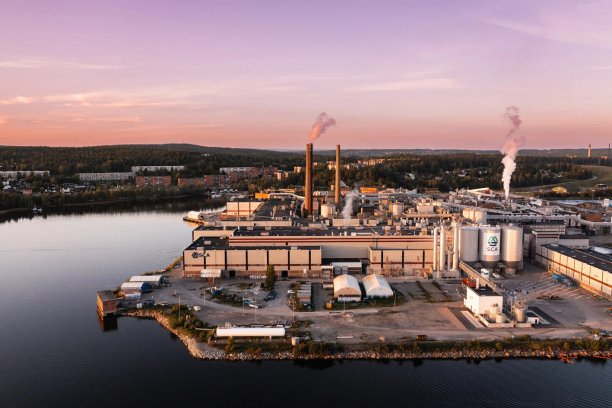
Circulose collection from Faherty Brand
New pricing model has been specifically designed to reduce pricing friction and drive adoption at scale.

24th June 2025
Innovation in Textiles
|
Sweden
Circulose is launching Circulose Forward – a platform of practical tools to help brands seamlessly integrate its cellulose pulp derived from textile waste into their supply chains and products.
Developed with non-profit Canopy, the platform includes the Circulose Material Library, featuring forward priced materials, a forward price calculator and details of the updated Circulose Supplier Network.
“Scaling up next-gen materials is not straightforward,” says Jonatan Janmark, CEO of Circulose. “To enable adoption at scale and at pace, we need to make integration into the supply chains of brands seamless. Circulose Forward is a key initiative aimed at making that happen.”
“We’re proud to support partner with Circulose’s on the launch of Circulose Forward,” said Nicole Rycroft, founder and executive director of Canopy. “This platform provides practical, scalable solutions that align with both climate science and market needs. It’s the kind of innovation that helps the industry leave deforestation in the past and move decisively toward a resilient, low-carbon, Next -Gen future.”
The Circulose Material Library is a digital showcase of commercially available fabrics and yarns made with Circulose highlighting its performance and versatility.
A number of these materials qualify as forward priced materials grounded in the principle that there should be no unwarranted price amplification through the value chain steps.
The forward price calculator meanwhile helps brands estimate the expected cost impact of adopting Circulose at material or garment level.
The Circulose Supplier Network (CSN) is a group of supply-chain partners that are experienced in producing materials made with Circulose and are committed to support a smooth and efficient shift from virgin fibers to Circulose.
“This is just the beginning,” said Jonatan Janmark, CEO of Circulose. “Circulose Forward will continue to grow, giving our partners access to a robust portfolio of tools that make circularity not a distant vision but a reality today.”
Mango partnership
In separate news, Circulose has announced Mango as its first new brand partner, reflecting a strengthened commercial strategy of focusing on forging closer brand partnerships while introducing a new pricing model and offering expanded support services.
Formerly known as Renewcel, Circulose spent a decade perfecting a method of turning cotton-rich textile waste into its novel dissolving pulp and in late 2022, began deliveries from its state-of-the-art plant in Ortviken, Sweden.
The challenges of scaling rapidly in the aftermath of pandemic-induced supply chain disruptions and spiralling costs, however, soon became apparent. Demand failed to match expectations, and although Renewcell secured short-term liquidity from its major shareholders, in February 2024 it was forced to file for bankruptcy.
Now renamed Circulose, and with new backers, the company is learning from its mistakes, ensuring securing binding offtake agreements with customers – an existing agreement is still in place with H&M – and also looking East for technology licensing agreements with partners.
In April, for example, Circulose announced a strategic partnership with Tangshan Sanyou Group, of Dongguan City, Guangdong, China, marking a significant milestone in the commercialisation and scaling of Circulose pulp. Circulose is working with Sanyou Group’s Xingda Chemical Fibre to ensure that ReVisco fibres produced using Circulose pulp meet market demands in terms of quality, supply capacity and pricing.
The new Circulose pricing model has been developed in collaboration with the sustainable textile organisations Fashion for Good and Canopy as part of a joint initiative to accelerate the shift to next-gen materials and requires brands to license Circulose to access the fibre. It has been specifically designed to reduce pricing friction and drive adoption at scale, shifting from limited capsule collections to large-scale production.

Business intelligence for the fibre, textiles and apparel industries: technologies, innovations, markets, investments, trade policy, sourcing, strategy...
Find out more